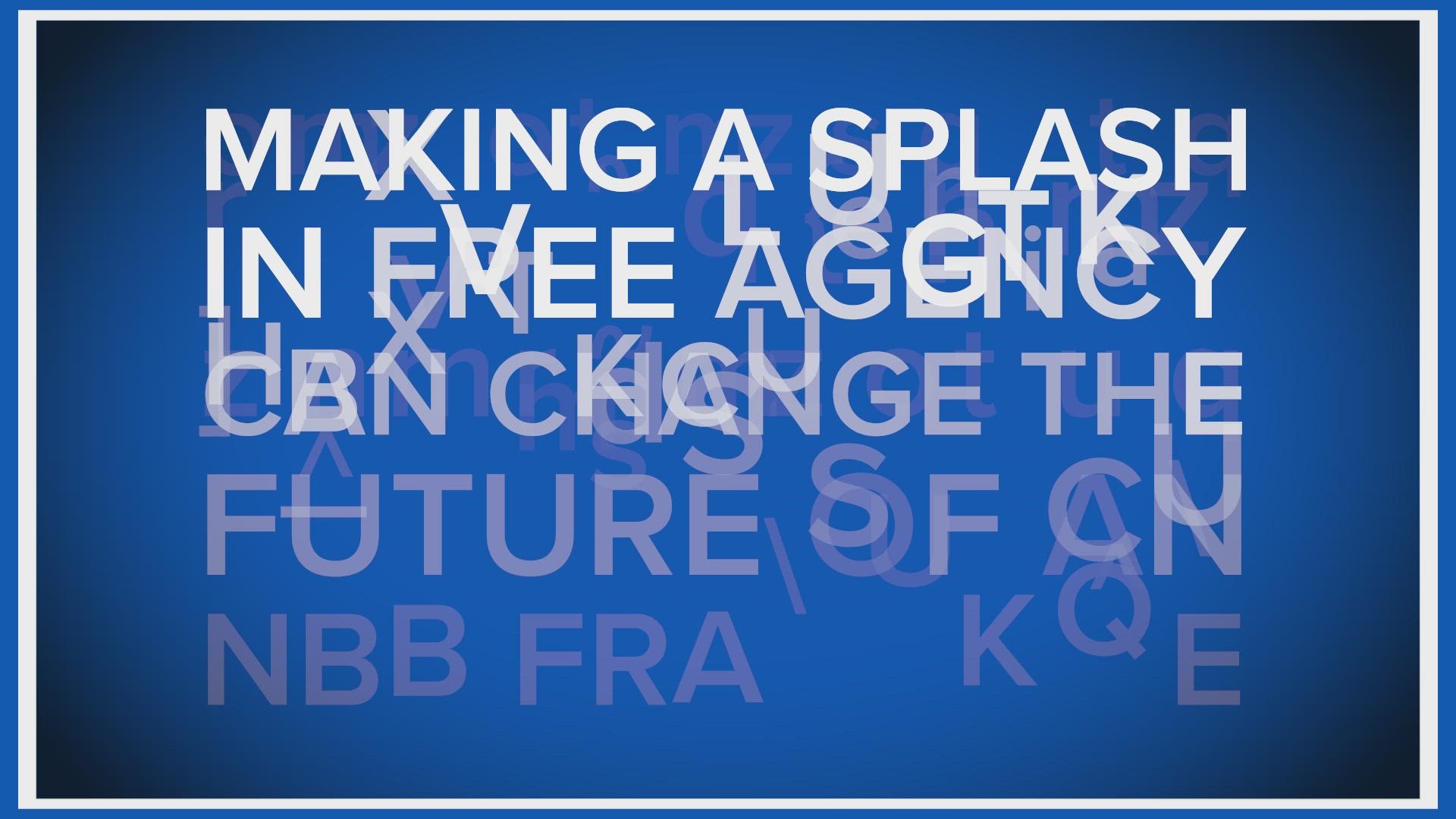DALLAS — The Dallas Mavericks are about to embark upon yet another important NBA free agency period this summer.
Coming off a trip to the Western Conference Finals with one of the best players in the league in Luka Doncic, the right signing could be the move that helps this franchise take the next step towards an NBA Championship.
The Mavericks found out in the 2022 offseason that unrestricted free agent guard Jalen Brunson would be signing with the New York Knicks rather than staying with the team that drafted him in the 2nd Round of the 2018 NBA Draft.
With owner Mark Cuban at the helm, the Mavs as an organization have a reputation of making risky but winning moves. However, there have also been plenty of times where that boldness ended up bringing on a player that didn't fit with the roster or live up to expectations.
In no particular order, here is a look back at some of the best and worst free agent signings in the Mavs franchise history.
Note: Players the Mavs drafted, traded for or sign-and-traded do not count on these lists. This only includes players Dallas signed as free agents.
10 best free agent signings
Vince Carter
Vince Carter joined the Mavericks the summer after the franchise won its first NBA Championship in 2011. While the team let Tyson Chandler, J.J. Barea, Caron Butler and DeShawn Stevenson all sign with other teams, Carter picked Dallas as he had been trying to transition into the next stage of his career.
While with the Toronto Raptors and New Jersey Nets, Carter was the clear No. 1 option offensively. While with the Orlando Magic and Phoenix Suns, it started to become clear the eight-time NBA All-Star wasn't the superstar player he once was, especially since the Suns bought out his contract to end his tenure with the franchise.
At age 35 at the time of his signing with the Mavs, Carter quickly started to become a reliable source of offense off the bench, acting more as a shooting threat than the high-flying dunker he once was. (However, he still had some impressive, athletic moments during his time in Dallas.)
Fans were also drawn to Carter's positive attitude, leadership and willingness to take the big shot at the end of games. That was never more emblematic than during Game 3 in the 1st Round of the 2014 NBA Playoffs against the No. 1 seed San Antonio Spurs.
With the Mavs down 108-106 with 1.7 seconds left on the clock, Carter received the inbounds pass in the corner, pump-faked and made the buzzer-beating three-point shot at the American Airlines Center to give Dallas a 2-1 series lead.
While the Mavs went on to lose that series in seven games, this ecstatic moment alone made Carter's free agency signing worth it in and of itself.

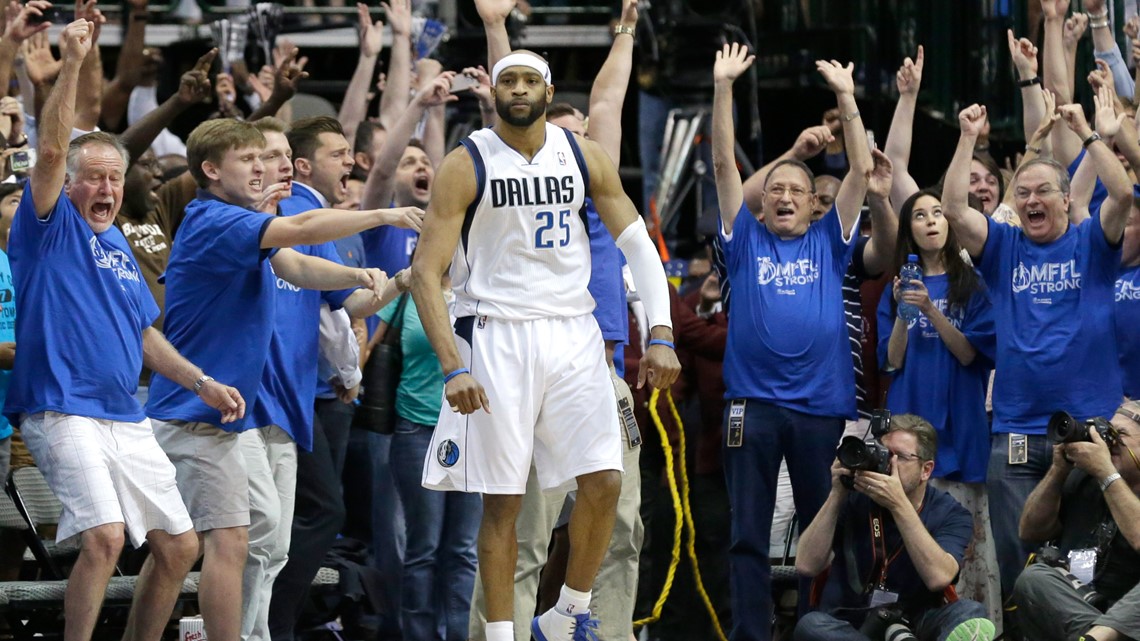
Dorian Finney-Smith
When the Mavericks brought in Dorian Finney-Smith to play for the team's 2016 NBA Summer League, one of the key skills they knew would be on display was his perimeter defense. The Virginia native only played in four total minutes through the first four games of his rookie season.
However, Finney-Smith showed he was ready for a bigger role during an 86-75 overtime win against the Milwaukee Bucks, earning 32 minutes in the process.
The 29-year-old swingman has also progressively added something new to his game each season he has been in Dallas. Every single successive season in the past six years Finney-Smith has been a Maverick, the active forward has increased each of these statistics:
- Minutes
- Field goal attempts
- Three-point percentage
- Assists per game
- Points per game
Now considered one of the more consistent "3-and-D" players in the league, Finney-Smith played a key role in leading the Mavericks to the Western Conference Finals in 2022. He had a 24-point game against the Suns as well as a 23-point game against the Golden State Warriors.
By signing a four-year, $52 million contract extension this past March and solidifying his role next to superstar Luka Doncic, this once undrafted free agent seems like he picked the right team to build his career around.
George McCloud
When the Indiana Pacers drafted George in 1989, he was expected to be one of the next big NBA stars. However, his play on the court just never lived up to the hype as injuries early on quickly derailed his career.
The Pacers released McCloud just four years into his career as he then played in an Italian basketball league during the 1993-94 season and an American minor league for part of the 1994-95 season.
That's when the Mavs gave McCloud a second chance in the NBA, signing the 6-foot-8-inch forward to a 10-day contract. It only took McCloud one season to average 18.9 points per game, which was third-best on the team behind Jamal Mashburn (23.4) and Jim Jackson (19.6).
McCloud established himself as a lethal three-point shooter during a time this wasn't a part of every NBA offense. During the 1995-96 season when he finished second in Most Improved Player voting, McCloud attempted 678 three-pointers while shooting 37.9% from deep. This remained the NBA record for 20 years until Golden State Warriors guard Stephen Curry broke it during the 2015-16 season with 886 attempts.
While McCloud's career never panned out to be what many expected it to turn into, it's undeniable he played his best basketball in the Lone Star State.

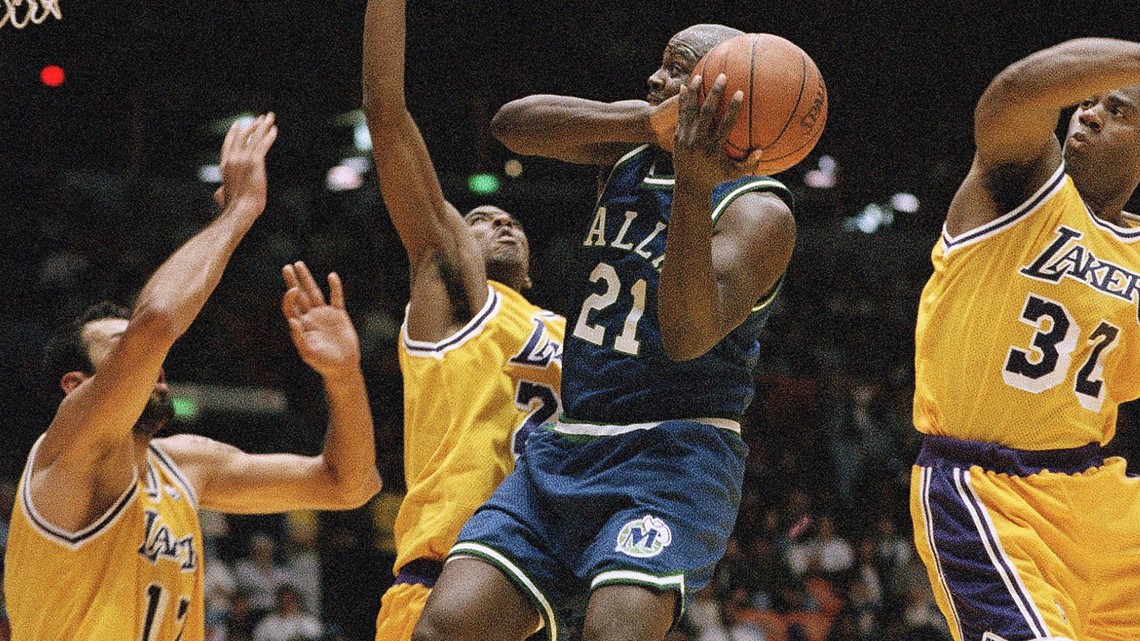
Peja Stojakovic
While the Mavs' 2011 championship run will forever be remembered because of Dirk Nowitzki's brilliance, there were many moves made by the front office that season that helped give the Mavs the extra boost off the bench the team needed.
One of those signings was veteran sharpshooter Peja Stojakovic, who was in what would inevitably be his final season in the NBA.
Stojakovic ended up averaging 8.6 points per game while shooting 40% from the three-point arc in 20.2 minutes per game in 25 games during the regular season with Dallas. However, his impact was much more than numbers on a stats sheet.
Stojakovic was a well-known deep threat who pulled defenders out of the paint from fear he would be knocking down three-pointer after three-pointer. While he didn't always make them at a prolific rate while in Dallas, the threat was always there when he was on the court. And since the Mavs offense that season was reliant on floor spacing, the Yugoslavia native fit in perfectly.
No moment shined brighter during Stojakovic's time in Dallas than during Game 4 of the Western Conference Semifinals against the Los Angeles Lakers, who were the reigning champs at the time. The veteran forward made all six of his three-point attempts in the 122-86 blowout that helped the Mavs easily sweep the Lakers.
Coming in on a minimum deal with one job while on the court, Stojakovic clearly helped the Mavs work their way through the playoffs and earn the franchise's first Larry O'Brien NBA Championship Trophy.
Monta Ellis
Monta Ellis played during a difficult time for the Mavs — in between the franchise's championship run in 2011 and Doncic's arrival to Texas. There were many seasons in that seven-year stretch that have been forgotten by Mavs fans and many free agents the front office whiffed on.
However, what can't be lost is Monta Ellis' two years with the team, even if they weren't the most efficient or noteworthy in the long term. Ellis started his career with the Warriors, winning the Most Improved Player of the Year Award in 2007. Ellis, who was known for his quickness, ball handling and ability to finish at the rim, struggled to fit next to Stephen Curry when his team drafted the younger point guard out of Davidson in 2009.
After a two-year stint in Milwaukee, Ellis decided to sign with the Mavericks as a free agent and join Nowitzki's team as his No. 2 scorer. However, Ellis quickly found his footing with the Dallas offense and did something that hadn't been done for the Mavs in quite some time.
By averaging 18.9 points per game during the 2014-15 season, Ellis was the first Mavericks player not named Dirk Nowitzki to lead the team in scoring since Michael Finley (22.6) during the 1999-2000 season.
Even though Dallas had two first-round exits in the playoffs while Ellis was with the team, he gave the franchise a spark and gave the fans plenty of excitement in the process.

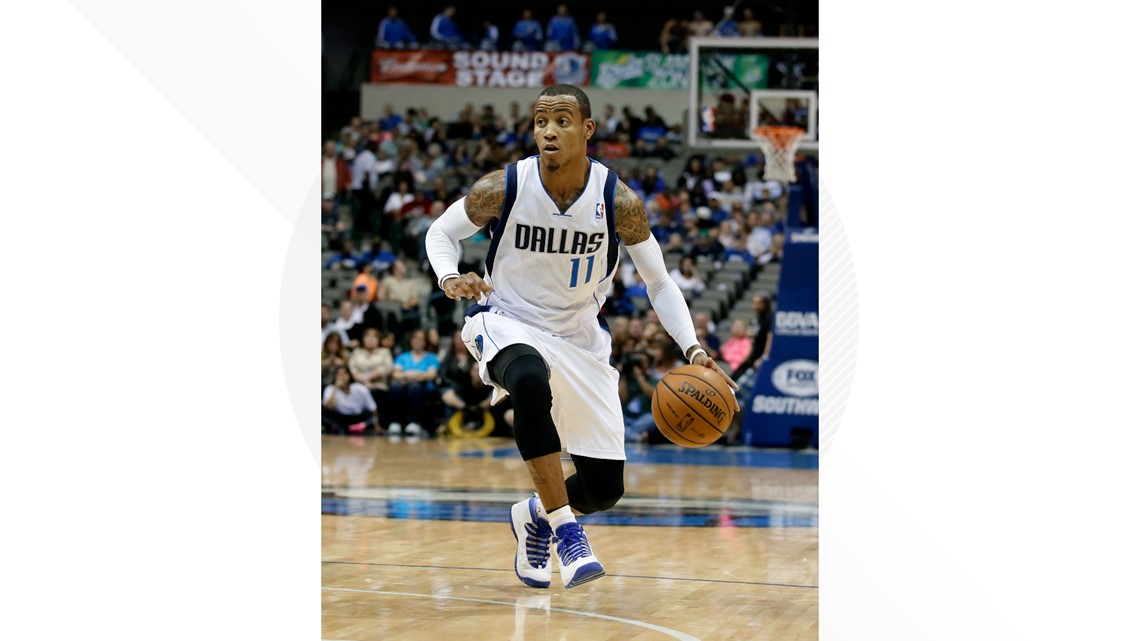
Maxi Kleber
It might have been inevitable that the three-point shooting big man Maxi Kleber was destined to sign with the Mavs since he is native to the same hometown (Wurzburg) as Dallas legend Dirk Nowitzki.
What wasn't inevitable is Kleber's growth into one of the key players that helped the Mavs go to the Western Conference Finals in 2022.
Just one season after Dallas signed Dorian Finney-Smith once he went undrafted, the front office did the same with Kleber. And just like Finney-Smith, the 30-year-old big man has continued to add to his game as the Mavs have gone from a team fighting for the best lottery odds to a championship contender.
In Kleber's rookie season, he only averaged 16.8 minutes per game and 1.8 three-point attempts per game. While he has always done a good job protecting the rim and going straight up defensively during his time in Dallas, his ability to stretch the floor was more of a project to work on than a skillset.
That quickly changed as Kleber went from those 1.8 attempts per game from deep in his rookie season to 4.3 attempts per game during the last three seasons combined. And with the exit of center Kristaps Porzingis in February 2022, Kleber was given more responsibilities on both sides of the court for the rest of the year.
While he had a down year from deep during the 2021-22 season, he had his defining playoff moment in Game 2 during the first round against the Utah Jazz. Kleber went a scorching 8-11 from deep to help Dallas earn the 110-104 victory and eventually take down the Jazz in six games.
He might not be a flashy pick that many will remember as a "big free agent signing", but like Finney-Smith, Kleber has proven he can be a key player on a winning basketball team and fits in nicely next to Doncic.
Brad Davis
Back in 1980, the Mavericks were joining the NBA as an expansion team. That meant the team had no reputation, expectations or culture of any kind.
So when three-year point guard Brad Davis decided to join the team, he established himself as the first-ever prominent free agent to sign with the Mavericks.
And the Pennsylvania native didn't just sign with Dallas, he ended up making it his home, playing the rest of the 12 seasons of his career in North Texas. Davis turned into one of the best facilitators in the game, consistently getting the ball to his teammates right where they wanted it.
When he retired in 1992, Davis was a part of multiple all-time career leaders lists for the Mavericks franchise, including second in total assists (4,524) behind teammate Derek Harper (5,111). Davis' number 15 jersey is one of only four jerseys hanging from the rafters (Dirk Nowitzki, Rolando Blackman and Derek Harper).
By helping build a culture in Dallas, becoming a fan favorite, and enjoying the franchise's first-ever playoff success through the 1980s, it's unquestionable that Davis is one of the most important free agent signings in Mavericks history.

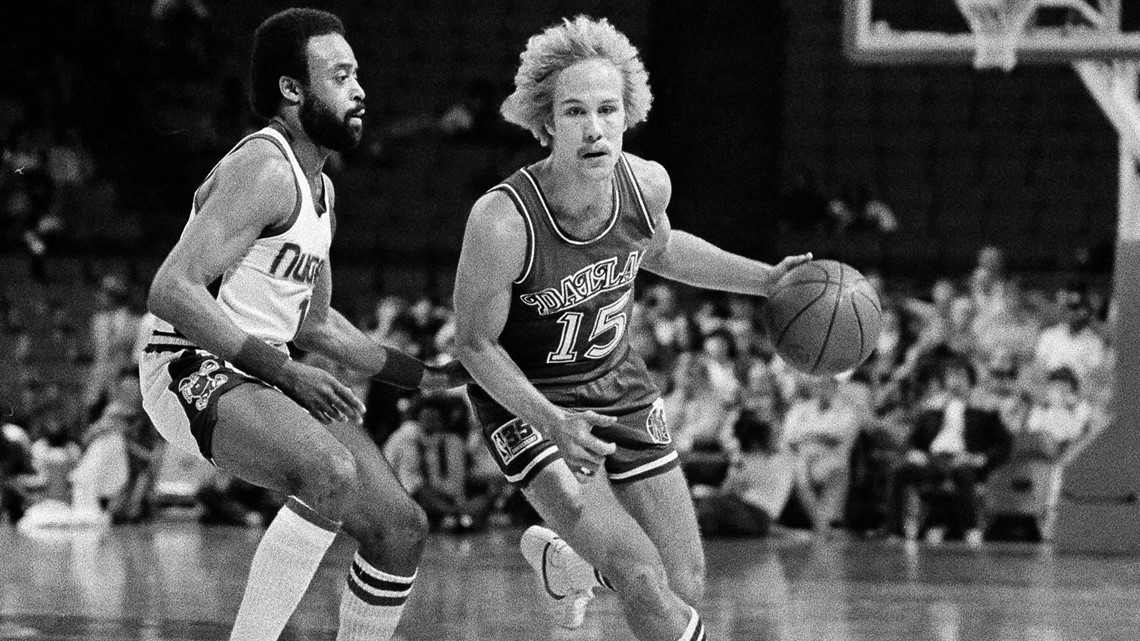
J.J. Barea
When the Puerto Rican scrappy point guard J.J. Barea signed with the Mavericks after going undrafted, it wasn't certain the (listed) 5-foot-10-inch sparkplug had the size and shooting ability to make it in the league.
But after his first two seasons with the team, Barea established himself as the backup point guard through his tenacity, ball control and spirit.
Barea was never going to be the player to fill up the stat sheet or have the highlight dunk. What he was almost always going to do, though, was give as much effort as possible. The Mavs guard always found a way to have a positive impact. If his shot was off for a game, he made sure to distribute the ball. If he was oversized on the defensive end of the court, he would frequently draw multiple charges during the game.
These small plays that don't show up on the stat sheet are the type of winning plays that matter in the playoffs. And that was never more noticeable than in the 2011 NBA Finals. After the Mavs went down two games to one in a best-of-seven series with the Miami Heat, head coach Rick Carlisle made an adjustment and replaced DeShawn Stevenson with Barea in the starting lineup.
With Barea (now famously remembered for) guarding LeBron James multiple times throughout the rest of the series and surprisingly holding his own while doing so, the Mavs won the next three games and the NBA Championship.
While Barea would sign with the Minnesota Timberwolves the following season, it never was a good fit. After three seasons up north, Barea decided to sign in Dallas again, where he would play the rest of his career.
The Mavericks organization seemed like the perfect fit for fan-favorite J.J. Barea, and he provided plenty of feisty moments to make both signings clearly worth it.
Reggie Bullock
During Luka Doncic's first three seasons in Dallas, the team had a prolific offense but a noticeably porous defense. With a change in the front office and with the head coach going into the 2021-22 season, it was clear something had to change if the Mavericks wanted to be more than a first-round exit in the playoffs.
This is when Reggie Bullock chose Dallas and signed a three-year, $30 million contract with the Mavericks. The 31-year-old small forward had bounced around the league up to that point in his career, never having a prominent role for a team that went deep into the playoffs.
While Bullock started his first season with the Mavs slow and shooting uncharacteristically poor from the three-point arc, he kicked things into gear when the Mavs did as well.
From January 1 through the rest of the regular season, Bullock shot 39.2% on three-pointers and was a staple for one of the best defenses in the entire NBA. New head coach Jason Kidd helped establish a scrappy, connected defense, and Bullock was right at the heart of this new mindset.
Kidd showed his trust in Bullock during the Mavs 2022 playoff run as he averaged a team-high 39.3 minutes per game while frequently having to defend the best guard or forward on the opposing team. And at the same time, Bullock was hoisting up 7.3 three-pointers per game in the postseason.
Along with Finney-Smith, Bullock has established himself as a solid free agent signing, a great fit next to Doncic and an integral part of the team's future.

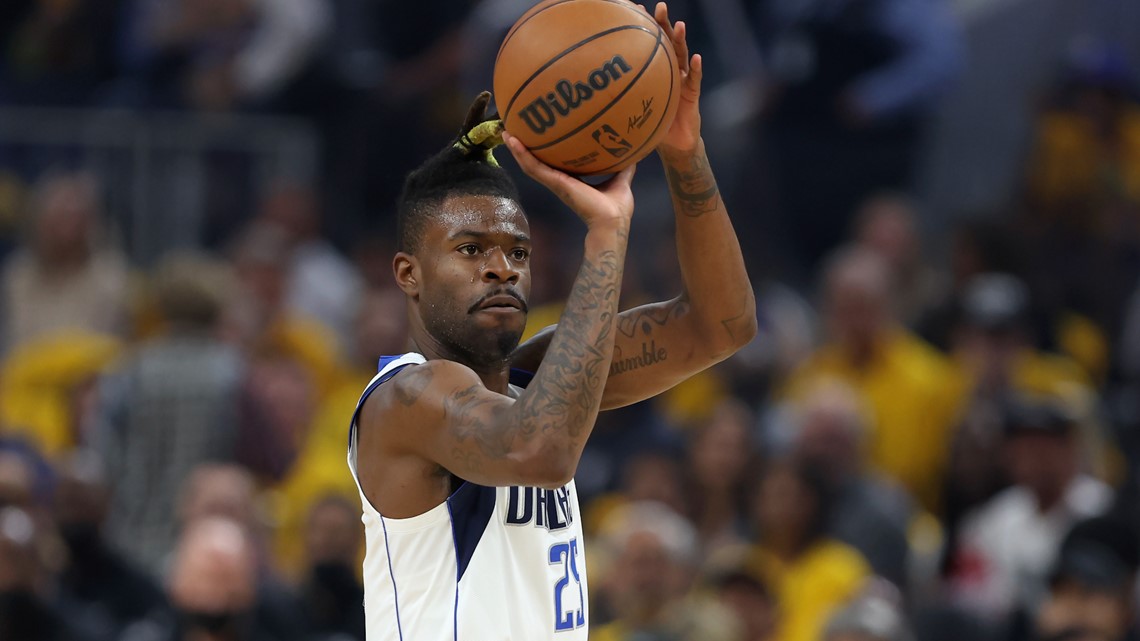
Marquis Daniels
While Josh Howard is the player many Mavericks fans remember from the 2003 NBA Draft, it shouldn't be forgotten that undrafted shooting guard Marquis Daniels chose to sign with Dallas for his rookie season.
Even though Daniels was mainly the third-string guard during his first year with the team, his silky-smooth style of play would show flashes as the Auburn graduate also had a soft touch around the rim.
At 6-foot-6 inches tall, Daniels had versatility and two-way ability that allowed the Mavericks to use him in many different lineups.
After getting moved into the starting lineup as the point guard towards the end of his rookie year, Daniels averaged 20.7 points per game and 4.9 assists per game during the final 11 games of the regular season. He would go on to average 15.8 points per game, 6.2 rebounds per game and 3.0 assists per game during a five-game series loss to the Sacramento Kings in the first round of the postseason.
While Daniels' career never blossomed from this point, he still had important moments during the franchise's first-ever trip to the NBA Finals in 2006. While many Mavs fans would like to forget this (first) Finals matchup with the Miami Heat, it shouldn't be forgotten Daniels gave the Mavs a significant boost off the bench with 12 points in Game 6, when the Heat won 95-92 and the championship as well.
Like many young Mavs prospects, Daniels never turned into what he showed flashes of becoming. But as an undrafted player signed as a free agent, Daniels should still be considered a positive signing during a time Dallas was consistently winning more than 50 games every season and playing meaningful postseason games.
10 worst free agent signings
Doug Christie
It's often forgotten that long-time Sacramento Kings shooting guard Doug Christie signed with the Mavericks in 2005, for a team that was about to go to the NBA Finals that season.
The Mavs were right in the middle of 12 straight seasons of making it to the postseason, so Christie was expected to be a pivotal part of a winning team. However, from the start, the veteran guard wasn't fitting in.
In the Mavs' season-opening 111-108 double-overtime win against the Phoenix Suns, Christie started at the shooting guard position and finished 0-4 from the field with zero points, three assists and two rebounds in 25 minutes.
Just seven games into the season, Dallas waived Christie who was also dealing with a left ankle injury at the time. Christie would go on to retire before coming back and playing seven games with the Clippers the following season.
While the Mavs had high hopes for Christie during a season the team was ready to win, both sides quickly found out from the start it wasn't a pairing that was meant to be.
Alex English
Alex English was one of the most prolific scorers in the NBA during the 1980s. The 6-foot-8-inch forward handled the ball masterfully in the mid-range area around the paint and moved well off the ball.
While with the Denver Nuggets during the 1982-83 regular season, English averaged a league-high 28.4 points per game. The following season, he was fourth in the league scoring 26.4 points a game.

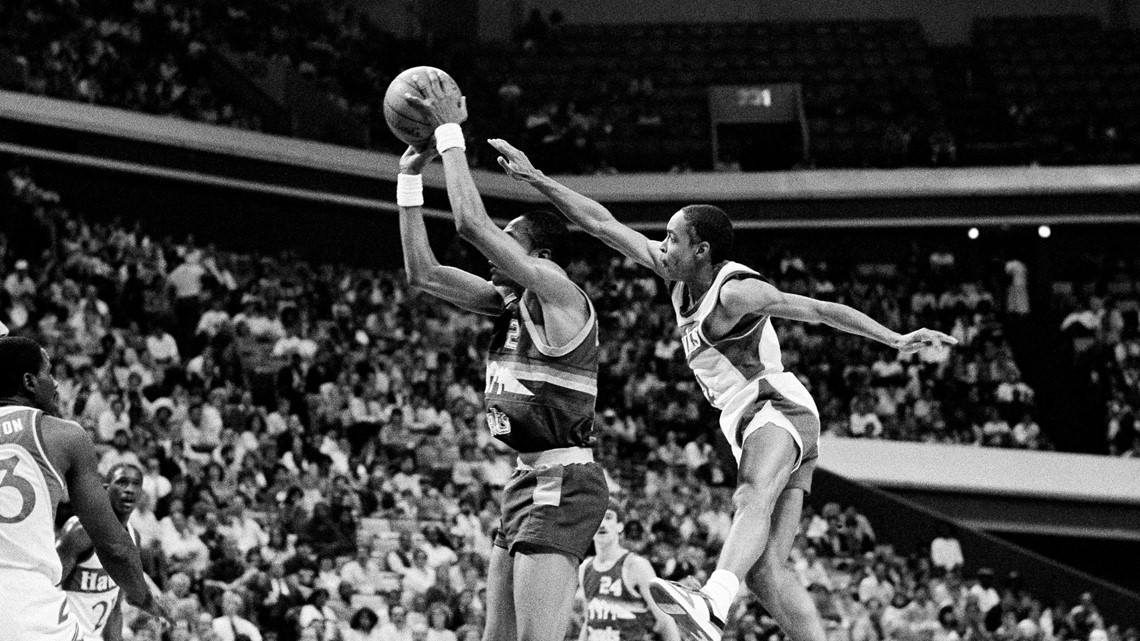
By the time the Mavs signed the now 37-year-old English to a one-year contract in 1990, the team wasn't expecting him to be this type of a scorer since it was towards the end of his time in the NBA.
However, English saw the largest drop in points per game in his career, going from 17.9 points per game the previous season to 9.7 with the Mavs. The team had a second-year option on his contract, but Dallas decided not to exercise it for the NBA All-Star.
English's contract was eventually bought out and the small forward would never play in another NBA season again. While English had an impressive 15-year career in the NBA, many will forget his short-lived run in Texas.
Chandler Parsons
During a time when the Mavs continually whiffed in the free agent market offseason after offseason, signing Chandler Parsons to a three-year, $46 million contract was a big nab for Dallas — especially since he was coming from the team's in-state rival Houston Rockets.
Parsons was a young, versatile small forward that could handle the ball, pass efficiently and knock down three-pointers. The Florida-native was supposed to be a part of one last chance for Nowitzki to make a deep postseason run.
When Parsons was on the court, he fit in well next to Nowitzki and Monta Ellis. The problem was just that: Staying on the court.
Constantly sidelined by knee injuries, Parsons was never able to get consistent minutes game to game or week to week. In the 2015 NBA Playoffs, Parsons played in one game with the Mavs before missing the rest of the first round series. Dallas lost to Houston in five games.
In March of the following season, Parsons underwent surgery to address a torn meniscus in his right knee, forcing him to miss the rest of the season. Parsons would go on to sign a four-year deal with the Memphis Grizzlies.
While his time in Dallas didn't last very long and his best moments were short-lived, Mavs fans will simply have to imagine what the Nowitzki-Parsons-Ellis trio should have been if Parsons could have stayed healthy.

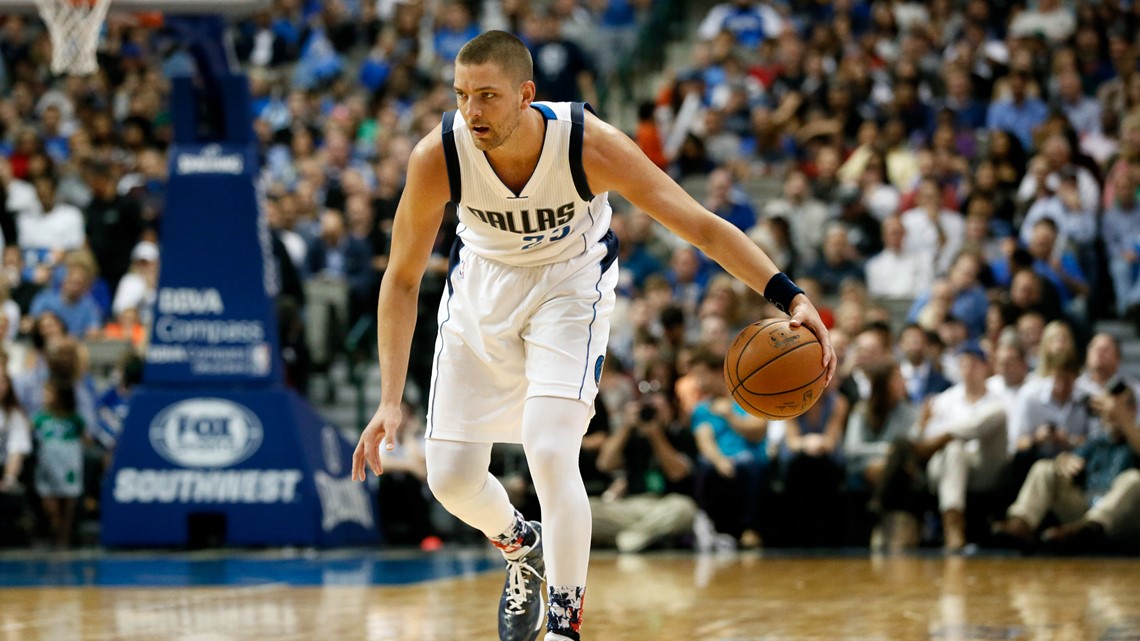
Dennis Rodman
While Dennis Rodman had an NBA career filled with plenty of antics and drama, many of his years were also filled with elite rebounding and defense. That's what made him so valuable to the 1990s Chicago Bulls teams.
However, later on in his career, Rodman started acting up more and rebounding less. In one of Mark Cuban's first moves as the owner of the team, the Mavs signed Rodman in February 2000, expecting him to energize his teammates on and off the floor.
At the time, Rodman had been out of basketball for more than a year after the Los Angeles Lakers cut him for violating team rules.
Rodman's time in Dallas lasted even less time than in Los Angeles. He played 13 games with the Mavs before being cut as the team went 4-9 during that stretch. Even though Rodman averaged 14.3 rebounds per game with Dallas, he received six technical fouls, was thrown out of two games and was suspended from one.
It was a pairing destined to fail almost instantly with plenty of bad blood between the two parties left behind.
Evan Eschmeyer
Evan Eschmeyer played six years at Northwestern University before the New Jersey Nets took him 34th in the 2nd Round of the NBA Draft.
The 6-foot-11-inch Ohio native was envisioned to be an efficient scoring big man who could also effectively rebound on the defensive side of the court.
However, through two seasons with the Nets, Eschmeyer never really established himself in any way, having to deal with constant injury issues.
In one of the most bizarre signings since Cuban became the owner of the Dallas Mavericks, his front office signed Eschmeyer to a six-year, $20 million deal in 2001.
At the time of the signing, before Eschmeyer even put on a Mavs uniform, many analysts and fans were confused as to why Cuban would give out such a long and lucrative deal to somewhat of an unknown player.
In two seasons with the Mavs, Eschmeyer averaged 1.5 points per game and 2.5 rebounds per game, playing more than 20 minutes in only two of 48 games with the team. He was off the team by 2003.
Eschmeyer had to retire from basketball in 2004 because of chronic knee problems. But before he did, the Mavericks gave him a hefty contract that remains a head-scratcher to this day.
DeAndre Jordan
In the summer of 2015, the Mavericks received a verbal agreement from Los Angeles Clippers center DeAndre Jordan that he would be signing a four-year, $80 million contract with the team.
However, after having second thoughts and a number of his teammates flying to talk to him, Jordan backed out of the deal and stayed with the Clippers.
Fast forward to 2018, Jordan had slowly shown he was at a different stage of his career. The high-flying big man didn't have as explosive of a first step as he did early in his career, and his defensive prowess had cratered.
So in an attempt to bring in some size and rebounding, the Mavs signed Jordan to a one-year deal for the 2018-19 season. Jordan did begin the season with three straight double-doubles. However, many fans and commentators pointed out that Jordan had a tendency to chase rebounds and not stay locked in defensively.
Jordan would only play 50 games with Dallas before the front office traded him to the Knicks in a package for Kristaps Porzingis.
So while Jordan had a good rapport with Luka Doncic and helped the team have the assets available to acquire Porzingis, this signing was three years too late and never a good fit.

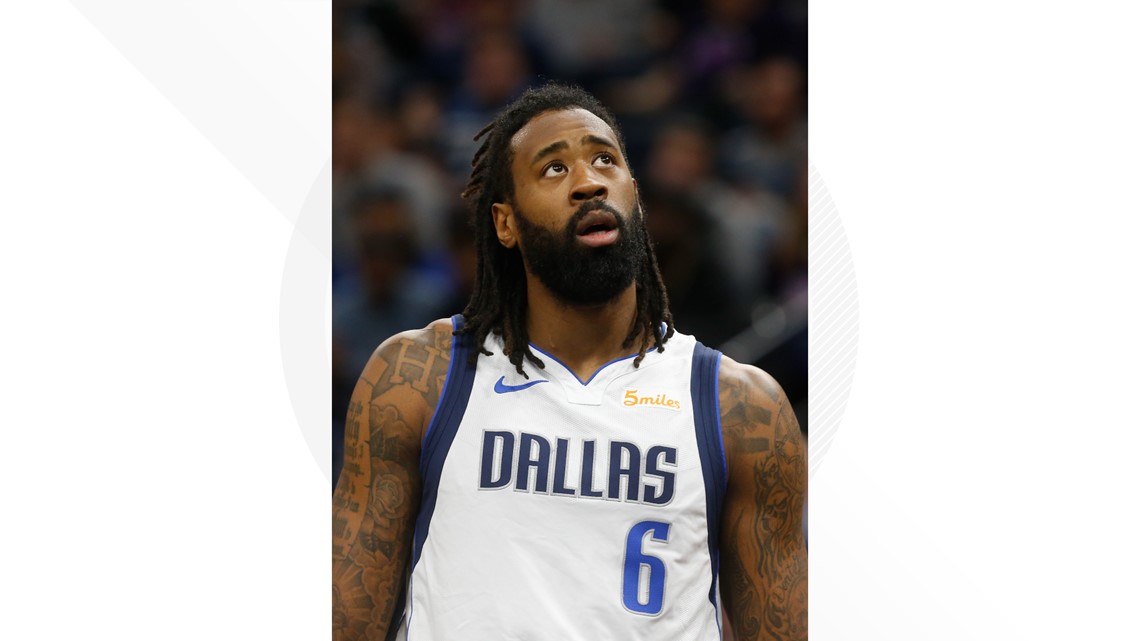
Tariq Abdul-Wahad
Tariq Abdul-Wahad came into the NBA with many hoping he could be a strong defensive specialist that would allow him to have a long career in the league.
However, it became apparent early on Abdul-Wahad had many injury issues and simply couldn't stay on the court. During his first five seasons, the most games he played in one season were 59 games his rookie year. Abdul-Wahad also showed little aggression on the offensive end of the court, having many games where he wouldn't take any shots.
After the 2001-02 season, one in which he only played 20 games, the Mavs decided to give Abdul-Wahad a massive six-year, $40 million contract. He went on to only play 18 games in two seasons in Dallas as Mark Cuban also criticized his work ethic while he battled through injuries. He was eventually released.
The Mavs' contract for Abdul-Wahad will go down as one of the more confusing ones given out during the Cuban era.
John "Hot Rod" Williams
John "Hot Rod" Williams made a name for himself while playing collegiately for Tulane University, where he left as the school's second all-time leading scorer.
Williams was known for his grit, versatility and selflessness on the court, helping to create a positive culture while spending nine seasons with the Cleveland Cavaliers from 1986-1995. Through his first four seasons with the team, Williams only missed five total games, playing all of those latter two seasons.
However, by the time the Mavs got into the mix with Williams, similar to Alex English, the 6-foot-11-inch center was well past his prime. In 1998, Dallas signed Williams to a three-year, $6 million contract, which was considered a significant investment at the time. But that investment didn't pay out.
Williams played only 25 games with the Mavs before he needed to get back surgery; however, Williams never had that surgery and didn't step on the court for Dallas ever again. The big man only scored 29 total points in those 25 games with Dallas.
RELATED: How Dallas Mavericks CEO Cynt Marshall was built to turn around the team's toxic workplace culture
Derek Fisher
Coming off a playoff run with the Oklahoma City Thunder, long-time Los Angeles Lakers legend Derek Fisher found himself out of a job. That wasn't before signing with the Dallas Mavericks midway through the 2012-13 season.
The Mavs, being now a year removed from winning the NBA Championship, were a team looking to make another deep playoff run with Darren Collison starting at point guard.
However, after Collison went down with a finger injury and the team straddling around .500, Dallas signed Fisher and put him right into the starting lineup.
Fisher was a veteran guard who could bolster the team's backcourt while providing valuable leadership. Fisher was never a prolific scorer during his career, but he had a knack for making the right plays and hitting the big shots.
Through nine games with the team, the Mavs went 5-4 and were 12-13 overall after a 107-100 victory against the Philadelphia 76ers on Dec. 18, 2012.
However, in that game, Fisher only played five minutes, leaving with a strained right knee with 6:50 left in the first quarter. While his recovery time was expected to be about two weeks, Fisher unexpectedly requested to be released by Dallas two days later.

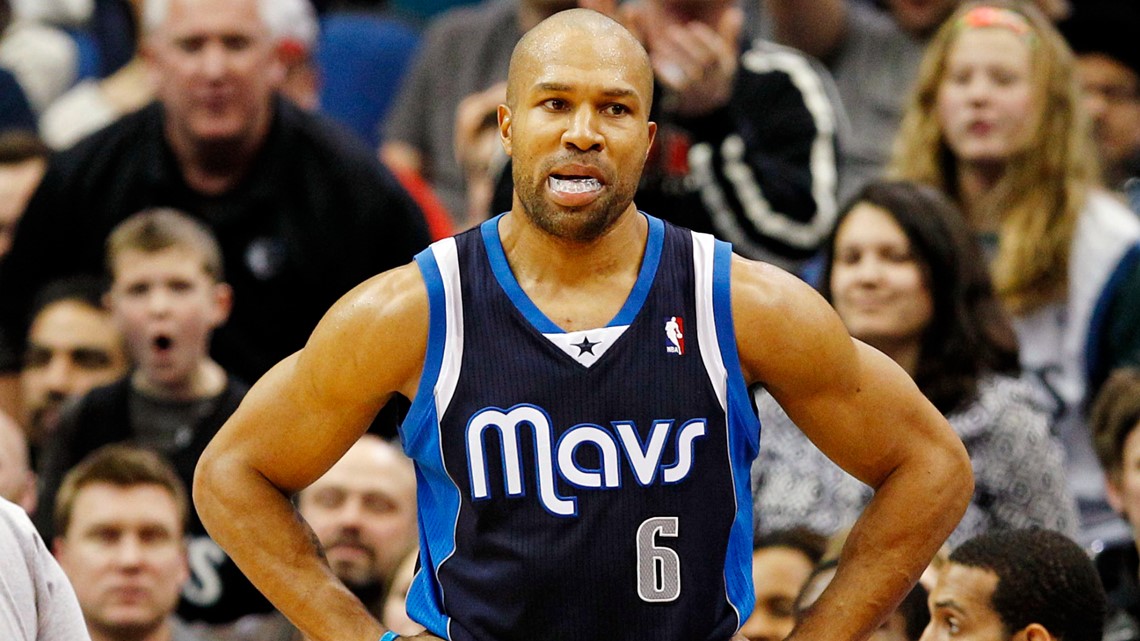
At the time, he said the injury played a part in his desire to be back close to his family in Los Angeles. However, a little more than two months later, Fisher re-signed with the Thunder, a contender, for the remainder of the season.
While Oklahoma City would go on to make the NBA Playoffs, Dallas would continue to have depth issues in the backcourt and miss the playoffs for the first time since the 1999-2000 season.
It was reported at the time that Fisher did not get in contact with the Mavs before signing with the Thunder, causing some disgruntlement among some in Dallas.
So while Fisher's signing was meant to be a quick fix in the backcourt and help push the team towards the playoffs, it inevitably did neither and lasted much shorter than many expected.
Micheal Williams
Dallas-native Micheal Williams played four years at Baylor University before the Detroit Pistons drafted him 48th in the 2nd Round of the NBA Draft.
Williams had a special start to his career, playing for a Pistons team that won the NBA Championship in his first year with the team. Williams averaged 2.4 points per game and 1.4 assists per game during his rookie season.
In a limited role, Williams was known for his strong defensive play, making the All-Defensive 2nd Team in the 1991-92 season with the Indiana Pacers. Williams had a short career that involved frequently moving around the league.
That also included the Mavericks signing him after he was waived by the Phoenix Suns in 1990. Even though he wasn't a well-known player at the time, Dallas was hoping to strengthen its defense with the addition of Williams.
Dallas got nothing from Williams as he didn't play a game with the team during his 12 days with the Mavs. He would eventually get picked up by Charlotte later that season. But Williams' hometown was never in the cards for the 6-foot-2-inch point guard.

